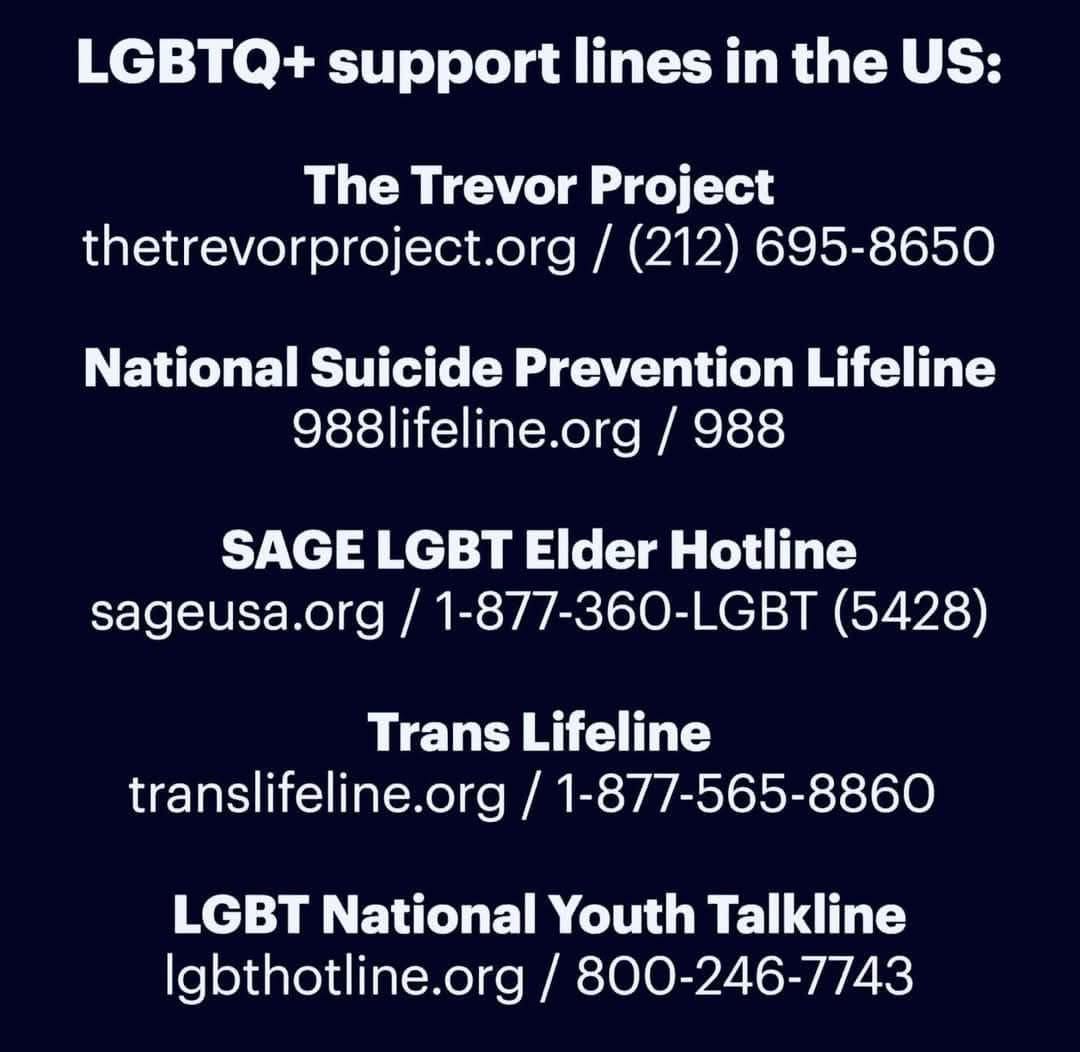In our local area, there has been a lot of talk about “conversion therapy,” and I thought I’d take a moment to address that and share some of my experiences. However, before we get to that, I should lay the groundwork.
Recently, it was announced that a pastor would be coming to the area—by invitation. And by no surprise, that invitation seems to have come from a very anti-LGBTQ+ local pastor who has long led the crusade against drag shows and Pride events. According to the flyer for the event, the guest pastor “identified as a ‘gay Christian,’ trapped in a false identity, before God emancipated him.” In other words, this pastor presents himself as an “ex-gay.” The descriptions for the event weren’t much better, including one ominously titled: “Understanding the Journey Out of Homosexuality.”
The final day of the event even included an invitation to LGBTQ+ people for what they called a “respectful dialogue.” Translation: a chance to sit down and be told how broken you are, and how much you need fixing. So yes, many of us called it what it was—a conversion therapy seminar, dressed up in Sunday best.
Of course, the pastor’s invitation for “respectful dialogue” starts to unravel the second you look into his past. He’s publicly referred to transgender people as “idols of Satanism,” called LGBTQ+ people “the evangelists of Satan,” described activists as “tyrants who hate God,” and has labeled the trans community “a false trans cult” more than once. Not exactly the kind of language that fosters an open and honest conversation, is it?
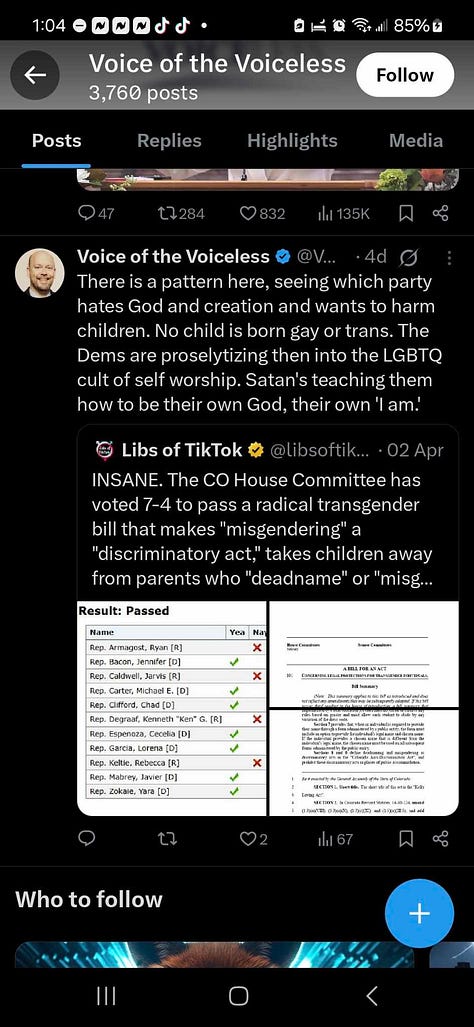
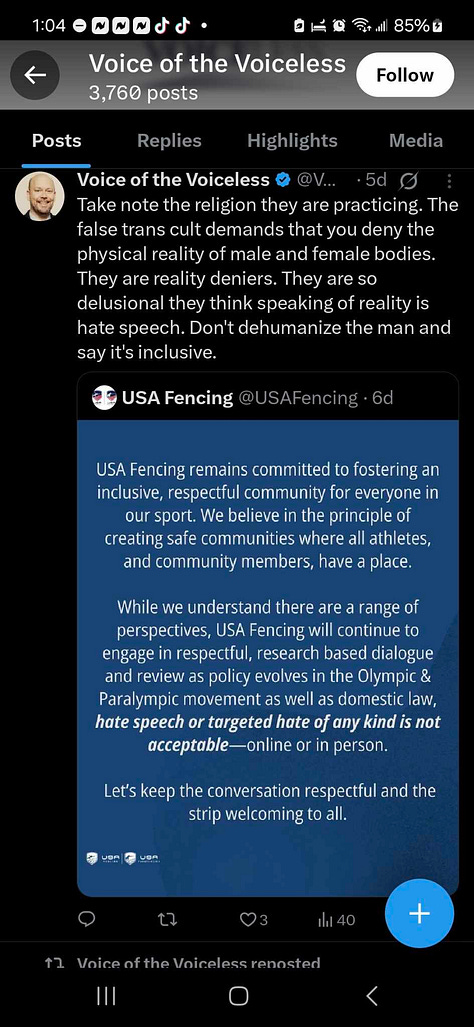
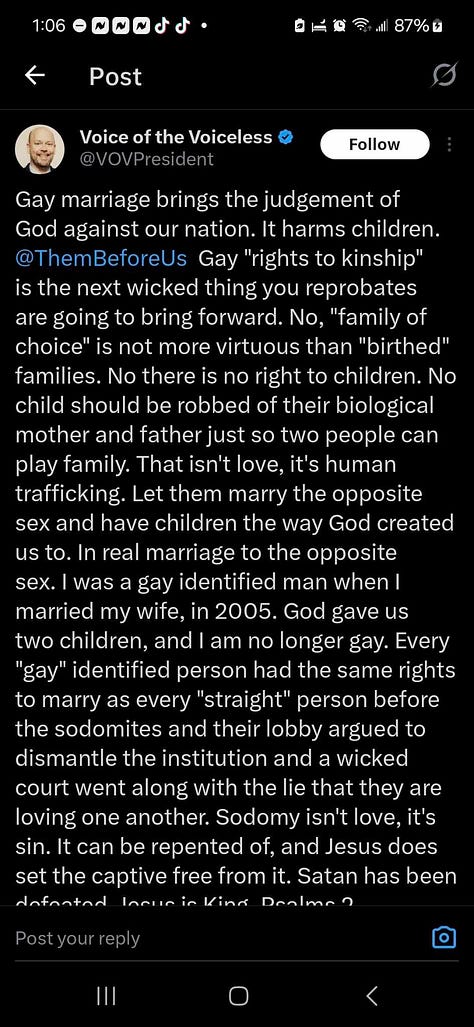

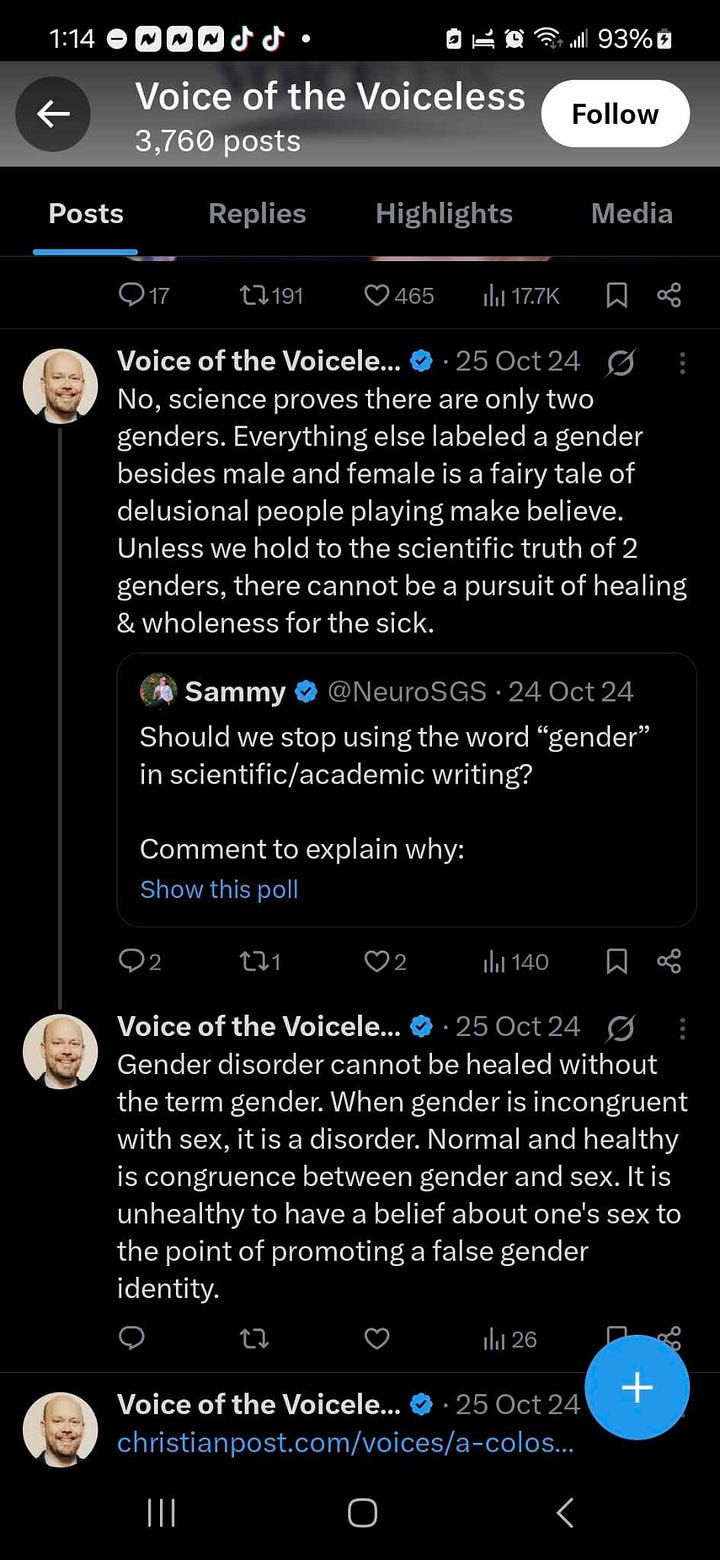

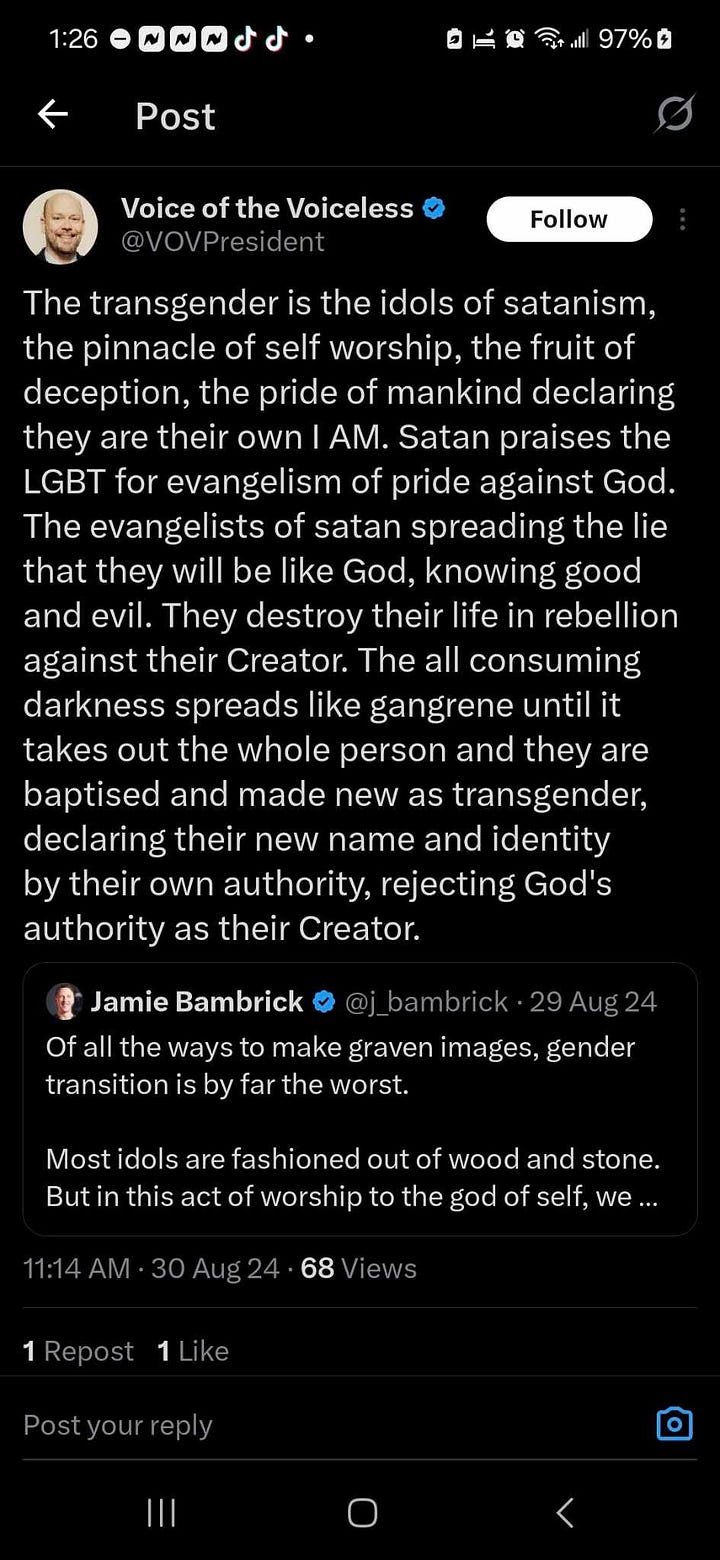
Naturally, local LGBTQ+ folks began warning each other not to attend. The event was originally scheduled to take place at the fairgrounds—at a discounted rate no less—which sparked calls of concern from community members. In response to those calls, the fairgrounds cancelled the contract. Now, the event will be hosted by a local church… the same one overseen by the anti-LGBTQ+ pastor who invited the speaker in the first place.
And guess what? The LGBTQ+ community is now getting blamed for the cancellation of the venue. This, despite the fact that the same anti-LGBTQ+ folks have a long and proud history of calling local businesses to complain whenever someone hangs a Pride flag or donates to a Pride event. Apparently, it’s freedom of speech when they do it… but cancel culture when we do the same.
They’ve since added a new element to the event—a public “meet and greet” at a local park. And look, this is just my opinion based on everything I’ve seen from this pastor, but I firmly believe this “meet and greet” was added just to provoke protests. This guy has a history of filming LGBTQ+ people, especially at protests, and posting those videos in private Facebook groups. And what’s the purpose of that? To stir up anger, resentment, and hatred among his followers.
So here’s my plea to the LGBTQ+ community: don’t give it to him. Don’t give him the content he’s looking for. I believe in protest—I always have—but in this case, the most powerful protest is absence. Let his park meet-and-greet be awkward, empty, and irrelevant.
Now, let’s dig into the core issue: what actually is conversion therapy?
The visiting pastor objects to being described as such. He insists that what he experienced wasn’t conversion therapy, because it didn’t involve physical abuse. In a podcast, he and his co-host laid it out like this:
“Just to be clear, I never went through conversion therapy … I was never waterboarded. I was never … Nobody shocked me. I was not coerced. There was no aversion therapy. None of that happened to me. None of it. I had wonderful, amazing Christian caregivers that loved me and walked me through some really dark stuff. They were kind and gracious. I was never forced to do anything. I never went to ‘change camp.’”
Okay, so they’re using an incredibly narrow definition of conversion therapy—one that only includes electroshock and literal torture. But conversion therapy is a much broader, insidious thing. It includes the “pray the gay away” approach. It includes “counseling” sessions that tell you you’re broken, sinful, or disordered for being who you are. It includes the kind of subtle shame that convinces you to hate yourself for something you can’t change.
And honestly? I think the religious version of conversion therapy is worse.
If clinical conversion therapy doesn’t “work,” you can at least say the therapist was bad. But if you “fail” at praying the gay away, the blame is entirely on you. You didn’t pray hard enough. You didn’t love God the right way. You weren’t sincere enough. That’s not just emotional abuse. That’s spiritual abuse. It takes something as deeply personal and important as faith and uses it to grind people into dust.
I know, because I lived it.
I was born and raised evangelical, in a southern Pentecostal church. We were the kind of church where you’d hear the name Madalyn Murray O’Hair like she was a demon under the bed. Anything secular was evil—including, of course, being gay.
I vividly remember an “exorcism” at our church. It happened during a Sunday night service. A young woman—someone with a documented history of mental illness—was believed to be possessed by multiple demons. One of those “demons” was homosexuality. She came back for multiple “deliverance” sessions over time.
But when she didn’t “stay healed,” the blame wasn’t on the church’s exorcism rituals—it was on her. She wasn’t sincere enough. She didn’t want freedom badly enough. Her failure was the excuse. That’s how this stuff works.
As for me, I’ve known I felt “different” since I was little. I remember crying when my parents gave me a boy’s haircut before I started school. I said, “I’m not pretty anymore.” That pain stuck with me for years. By puberty, I knew who I was attracted to—and it wasn’t girls.
In middle school, I had one friend who came out as gay. A lot of his friends abandoned him. I didn’t—but even I felt afraid to be seen around him too much. I was already being called “fa**ot” daily and I wasn’t even out. Eventually, I wrote him a letter coming out to him. I trusted him. But after I gave it to him, I panicked. What if he dropped it in the hallway? What if his parents found it? I begged him to give it back and denied everything I had said. He gave it back without a word.
Later, his parents found out he was gay. Their response? They sent him away to a Christian boarding school for “at-risk” youth. He convinced them to let him come home the next year—but they wouldn’t let him return to our school. One thing that didn’t change? He was still gay.
I kept struggling. In my early twenties, I tried dating a girl. The most feminine, petite, high-heel-wearing girl I could find. I thought maybe that would fix me. It didn’t. The relationship ended, and I felt like I had lost my “last chance” to be normal.
So I doubled down on faith. I rejoined the church. I got involved in ministry. I went to every revival service hoping for a miracle. I prayed constantly for God to change me. I read scripture like it held the cure.
Nothing changed—except that I got more depressed, more anxious. I believed the problem was me. I wasn’t trying hard enough. I wasn’t faithful enough. I wasn’t holy enough. If I had just believed a little harder…
That kind of spiritual self-harm doesn’t leave visible scars, but it carves you hollow just the same.
I remember a local forum called “Topix” where someone criticized our church for offering programs to people with addictions. They also named me. They couldn’t believe the church allowed “that fa**ot” to serve in ministry. That comment cut deeper than most sermons.
Eventually, I reached a breaking point. I couldn’t keep pretending. I started the journey of self-acceptance. It wasn’t easy. I lost people. I faced hate. But I also found something I never had before—peace. Real peace.
I came out. I started transitioning. I made new friends. I found family—chosen and real. I met the man who would become my husband.
So no—conversion therapy wasn’t something done to me with electrodes or a locked facility. It was done through sermons, prayers, expectations, silence, shame. It was being told every day that to be me was to be wrong. It’s no less real, and it’s no less harmful.
We can’t allow these events to be normalized, especially not in our communities. Because whether they call it “dialogue” or “testimony,” the message is the same: you’re broken. You need to be fixed. And if you can’t be fixed, you’re unworthy.
That is not love. That is not healing. And that sure as hell isn’t ministry.
We deserve better. We are better.
And we are not going anywhere.







